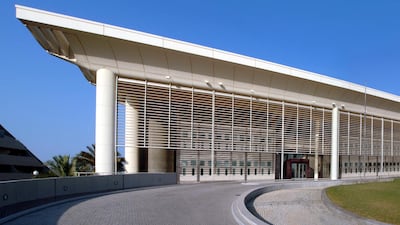The Arab Petroleum Investments Corporation (Apicorp), a multilateral lender, rolled out a $500 million (Dh1.84 billion) support package to help clients in the energy sector continue to fund projects as the Covid-19 outbreak and oil price fluctuations challenge the industry.
The funds will be deployed to support sustainable, impact-driven utilities, renewables and petrochemicals projects, among others, Apicorp said in a statement.
The Dammam-based lender will also expand its trade finance facilities to its member countries “within the broader objective of reducing the fiscal and current account pressures caused by current market conditions”.
“The energy sector is a capital-intensive sector where we are observing investment reductions and delays in implementation more than [in] previous downturns,” Dr Ahmed Ali Attiga, chief executive of Apicorp, said. “As a trusted financial partner, Apicorp will play a countercyclical role to address the funding shortfalls that may occur to our partners in the region as they work to meet planned commitments in critical projects and operations.”
Apicorp is owned by the 10 members of the Organisation of Arab Petroleum Exporting Countries including Saudi Arabia, the UAE, Kuwait, Libya, Iraq, Qatar, Algeria, Bahrain, Egypt and Syria. It was set up in 1975 to extend financial support to Arab countries in the energy sector.Last week, the lender increased its callable capital to $8.5bn from $1bn to boost investments in the energy sector. It also increased its authorised capital to $20bn, from $2.4bn previously, and its subscribed capital to $10bn, up from $2bn. Callable capital is the amount the lender can call from shareholders, but which has not yet been paid.
“Support for the energy and related sectors, in our member countries and beyond, helps to guarantee energy security and access to finance in these times of crisis. We will be working with other multilateral development banks and financial partners to mobilise funding and mitigate the impact on these countries,” Mr Attiga added.
In December, Apicorp agreed to two loan facilities worth a combined $250m with Sonatrach Petroleum Investment Corporation, a subsidiary of Algerian national oil company Sonatrach, to fund the maintenance of its Sonatrach Raffineria Italiana complex in Sicily as well as for the purchase of Saudi Aramco crude.
Moody’s Investors Service in October upgraded Apicorp’s long-term issuer and senior unsecured rating to Aa2 from Aa3, both of which are high quality and very low credit risk rating categories. Last week, Apicorp reported a 17 per cent increase in recurring income to $112m in 2019, up from $96m a year earlier. Net profit attributable to shareholders dropped to $111.6m from $182.8m, although the prior year figure included an $86.6m one-off gain from a divestment.
The coronavirus pandemic, which began in China last year has derailed the global economy and brought trade and the travel industry to a virtual standstill. The global economy is set to contract 3 per cent this year as it slides into the deepest recession since the Great Depression of 1930s, according to the International Monetary Fund.
Oil prices are also trading lower due to weak demand and excess supply, particularly in the US where storage facilities are moving closer to capacity.
Global benchmark Brent slid to $20 per barrel this week from more than $60 per barrel in early January. The benchmark for US crude, West Texas Intermediate, slipped into negative territory for the first time earlier this month for contracts due to be delivered in May.


